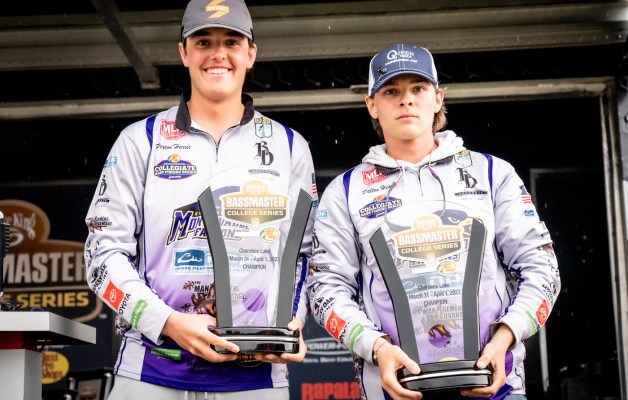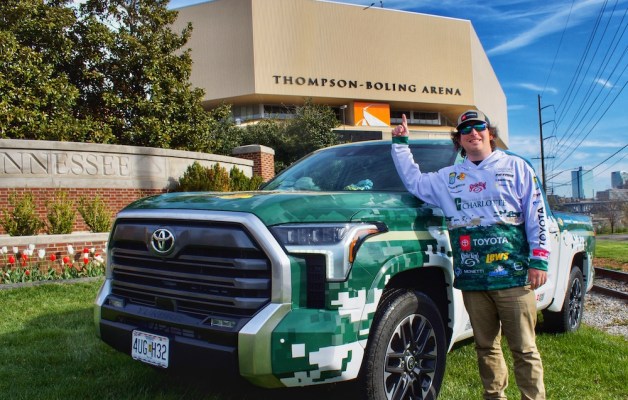Collegiate bass fishing has taken the nation by storm. According to some observers, the number of college students participating in organized college bass fishing tournaments more than doubles every year.
Auburn University's Bass Sports Club is one of the most active programs in the nation, and Auburn University also hosts the Southern Collegiate Bass Fishing Series.
"We didn't get started until late in the game. They've been fishing at the collegiate level in the Big Ten for quite a while now, but our club wasn't formed until last fall," said Jann B. Swaim, advisor to the club and manager for Deferred Maintenance and Special Projects at the university.
"But, once we did get going we've tried to do it right. In less than a year, our club has collected 30 members and is still growing. In fact, I've had three recruits talk to me this year about attending Auburn because of our club and our fishing program. We're proud of that. It says something."
Doing it right is not an easy task; college bass fishing is in its infancy. Several organizations around the country are working to develop and oversee the sport. Auburn University's program is cooperating with everyone, including BASS and ESPN.
"We're proud members of BASS and the Alabama B.A.S.S. Federation Nation [ABFN]," continued Swaim. "We feel as if they've given a lot to the sport, and we'd like to do our part to give something back.
"Fishing is getting gray. If it's going to survive we've got to get the young people involved.
There's no other way to do it."
Eddie Plemons, president of ABFN, agrees with those thoughts. "Programs like Auburn's are the future of our sport. We've got to get young men and women into competitive bass fishing if it's going to survive. The Auburn team is an important part of our program in the Federation. Its members are very active and very competitive, too. Believe me when I say they can fish."
Auburn University's Southern Collegiate Bass Fishing Series is a big part of helping to keep competitive bass fishing alive.
The series is a tournament trail in which at least 13 colleges and universities participate in a number of bass tournaments. It culminates with the Series Championship. This year, it will be held on Lake Guntersville, June 13-14.
Each event features team competition — two-person teams fishing against other two-person teams from another school — and two schools competing against each other.
Winners are awarded both individual and team points and, in some cases, prizes from sponsors.
"We struggled to find something fair and reasonable. We wanted to give everyone the same opportunity to compete and be successful. So far our kids love the format. We'll probably stick with it at least through next year," Swaim explained.
Unfortunately, one problem that nearly all the participating schools and college athletes experience is a lack of money. Bass fishing is not a cheap sport and college kids are not rich.
Swaim estimates it costs more than $2,000 to send a team to an event. That's a heavy burden.
Most of the teams raise money any way they can. Bake sales are popular, as are hamburger/hot dog stands and car washes. In some cases, sponsors help the teams. Auburn has been especially fortunate in this regard. American Rodsmiths, Davis Bait Co. and NetBait have all generously donated product and money to help the team and the series.
Swaim is optimistic about the future of collegiate bass fishing. "Things are looking positive. The response around the country has been overwhelming. We're growing by leaps and bounds."
At the same time, however, he cautioned that there are clouds on the horizon. "Gas and fuel prices are high, boats are expensive and we all know how much tackle costs. And, this is not an NCAA sport. We don't have scholarships and wealthy alumni to support it.
"If we are going to make a go of this as a college sport, we've got to have the support of everyone, not just young people who want to bass fish. Everyone means fishing organizations and clubs, alumni, industry companies and the public."




